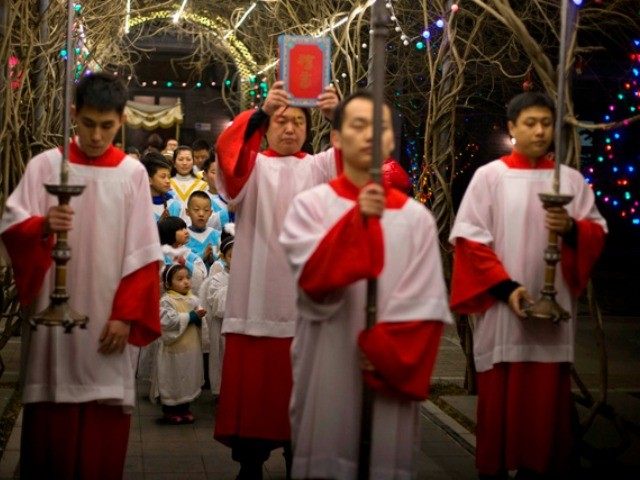Editor’s Note: This article first appeared at Business Insider. We reprint here:
HANGZHOU, CHINA — There’s nothing secret about Chongyi Church, one of the largest in China. Its lighted steeple and giant cross penetrate the night sky of Hangzhou, the capital of coastal Zhejiang Province.
Nearly everything at the church is conspicuously open: the front gate, the front door, the sanctuary, the people, the clergy. Chinese or not, you are welcome seven days a week. No layers of security guards or police exist. Walk right in. Join up. People are nice; they give you water, chat. Do you have spiritual needs? Visit their offices, 9 to 5.
For China, it is a stunning feeling. Most of the society exists behind closed doors and is tough, driven, material, hierarchical. The country values wealth, power, and secrecy – not to mention that both government and schools officially, at least, promote atheism.
Yet Chongyi looks and feels like any evangelical megachurch in Seattle or San Jose. There are big screens, speakers blaring upbeat music, coffee bars. The choir is a huge swaying wash of white and red robes. Chongyi seats 5,000 people and holds multiple services on Sunday.
“Some Sundays we are full,” says Zhou Lianmei, the pastor’s wife. “We also have 1,600 volunteers.”
While Christianity is waning in many parts of the world, in China it is growing rapidly – despite state strictures. The rise in evangelical Protestantism in particular, driven both by people’s spiritual yearnings and individual human needs in a collective society, is taking place in nearly every part of the nation.
Western visitors used to seeing empty sanctuaries in the United States or Europe can be dumbfounded by the Sunday gatherings held in convention center-size buildings where people line up for blocks to get in – one service after another. In Wenzhou, not far from Hangzhou, an estimated 1.2 million Protestants now exist in a city of 9 million people alone. (It is called “China’s Jerusalem.”) By one estimate, China will become the world’s largest Christian nation, at its current rate of growth, by 2030.
Indeed, an acute problem facing urban churches in China is a lack of space. Chongyi Church is building a million-dollar underground parking lot to replace one that worshipers under age 30 have taken over as a meeting place.
Read the rest of the story at Business Insider.

COMMENTS
Please let us know if you're having issues with commenting.